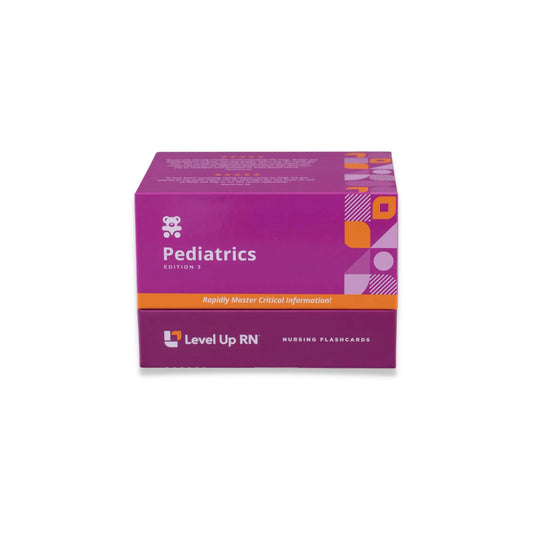Hi, I'm Cathy with Level Up RN. In this video, I'll be discussing acute glomerulonephritis. And at the end of the video, I'm going to give you guys a little quiz to test your understanding of some of the key points I'll be covering, so definitely stay tuned for that. And if you have our Level Up RN pediatric nursing flashcards, go ahead and pull out your flashcard on glomerulonephritis so you can follow along with me.
Acute glomerulonephritis is inflammation of the glomeruli that often but not always follows a strep throat infection. So with this disorder, the body's immune response to the streptococcal infection causes the collection of these antigen antibody complexes in the glomeruli, and this in turn causes inflammation and a decrease in GFR, which is glomerular filtration rate. So when we have impaired filtration in the kidneys, this causes a decrease in urine output and causes fluid to back up into the body. In addition, damage to the glomeruli causes the loss of blood and protein in the urine. Signs and symptoms of glomerulonephritis include oliguria, so a decrease in urine output, as well as brown cola-colored urine, which is due to the presence of blood in the urine. The patient will also have signs and symptoms of hypervolemia, such as hypertension, dyspnea, crackles, and edema.
In terms of labs, let's first go over expected findings in the blood. So because the kidneys are impaired, we will have an increase in creatinine and BUN. We will also have an increase in white blood cells due to infection and an increase in ESR, which is erythrocyte sedimentation rate due to inflammation. The patient will also have a positive antistreptolysin O titer or ASO titer, which means that they have antibodies in their blood that their immune system produced when they had a strep throat infection. So a positive ASO titer confirms that the patient had a recent strep throat infection. And then in terms of expected findings in the urine, because we are losing protein and blood in the urine, we would expect hematuria and proteinuria as well as an increase in urine-specific gravity. And then finally, a throat culture will be positive for group A beta-hemolytic streptococcus or a strep throat infection. Treatment of glomerulonephritis includes the administration of antibiotics to treat the underlying strep throat infection, as well as diuretics such as furosemide to get rid of excess fluid. Antihypertensive agents may be used to decrease the patient's blood pressure, and in some cases, corticosteroids may be prescribed as well. In terms of nursing care, you want to closely monitor your patient's intake and output along with their daily weight. And then you will need to restrict the patient's intake of fluids, sodium, and protein as ordered by the provider.
All right. It's quiz time, and I've got five questions for you this time.
Question number one. Acute glomerulonephritis commonly follows a blank infection.
The answer is a strep throat infection.
Question number two. Why would the urine of a patient with acute glomerulonephritis be cola-colored?
The answer is due to the presence of blood in the urine.
Question number three. Acute glomerulonephritis causes polyuria. True or false?
The answer is false. It actually causes oliguria, so a decrease in urine output.
Question number four. Acute glomerulonephritis causes an increase in urine-specific gravity. True or false?
The answer is true.
Question number five. What does a positive ASO titer indicate?
The answer is it indicates that the patient had a recent strep throat infection.
All right. That is it for this video. I hope you did great with that quiz, and I hope this information has been helpful. Take care, and thank you so much for watching.


